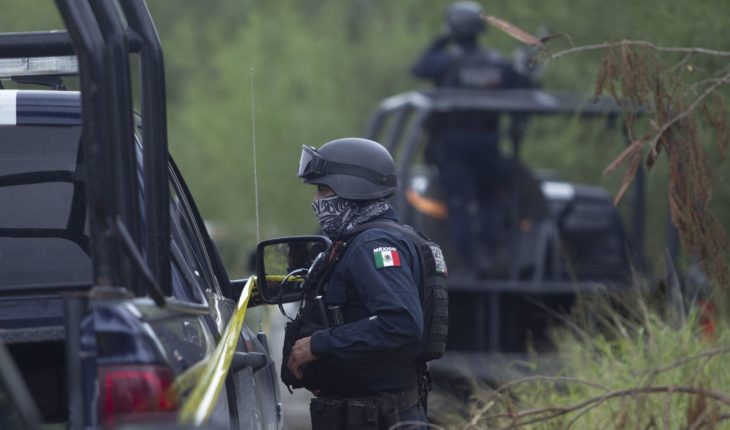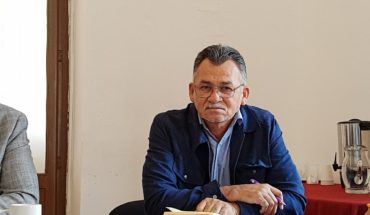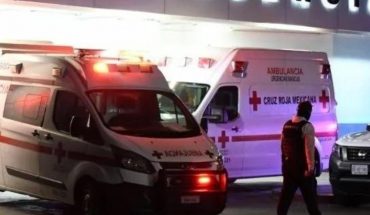Silvia was surprised by last Saturday’s shooting in Reynosa at about 12.30 p.m. She was at home, alone with her baby, filling some water tanks.
“It looked like they were inside the house from how loud you could hear. They were like goat horns, or thick caliber weapons. They could be heard shooting, shooting and shooting. There was no end to it.”
Upon hearing the metallic tableting, Silvia says she acted automatically: she grabbed the baby and sought refuge.
“Usually, if the bullets grab me in the street, I try to take refuge with a neighbor, or in some small group. And if they touch me in the house, I come fast to the bathroom because it has very thick singled walls, “explains the dispassionate woman, as one who explains an everyday fact in a city too accustomed to violence.
Once the horror was over, he went out into the street, to the little one opposite.
What happened? -she asked her neighbors in fear after seeing the façade of the house of one of them – a trailero – pierced and shattered by bullets.
There he saw the completely “white, white” face of a delivery man who had taken refuge in the tiendita, and began to understand the magnitude of the event.
Very close to the shop and the door of his house there were four bodies lying around: they were those of a man, his wife, his son, and a brother. A complete family.
Soon after it was learned that they were not the only ones. That Saturday, June 19, members of organized crime aboard three pickup trucks shot at everything that came their way, killing 15 civilians in five colonies adjacent to the Pharr International Bridge that crosses the United States.
Upon seeing the bodies, Silvia took her cell phone and searched for the chat group she has with her siblings.
“Listen, be very careful,” he warned them. “It’s very ugly for my house.”
One by one, the brothers responded to the message. All but the second of the five; Eulalio Céspedes, 37; an industrial engineering student who alternated books with his job in the maquila on Fridays, Saturdays and Sundays, and who had just opened a tiendita with his wife at their home in Infonavit. They have just finished paying it after a decade of effort and work.
At about nine o’clock in the morning, Eulalio had written another message in that same chat.
“Good morning, I hope you’re fine today, tomorrow, and always,” he wished his brothers, with whom he planned to meet the next day, Sunday, to celebrate Father’s Day at a family dinner.
Later, the man got into his van to head to the supermarket to buy the pantry for the week. Unlike what he used to do on Saturdays, that morning he did not take any of his three children, nor his wife.
But Eulalio did not make it to the store. His truck was found near a water purifier. She was parked on the sidewalk, and oriented as if she had decided to return home upon noticing the shooting.
When Silvia received a call from another of her brothers, she refused to believe it. At that time he still did not know that after passing through his street the aggressors continued to unleash terror in many other parts of the city, such as the Almaguer, Fidel Velázquez, Lampacitos, and Unidad Obrera neighborhoods.
He had to move to the place where his brother’s van had stayed.
“My heart went out when I saw it,” says Silvia in a broken voice.
Eulalio, who had left his cell phone at home forgotten and could not see his sister’s messages warning of the shootings, had been killed.
“The narcos walked at will”
Just five months earlier, Eulalio emerged victorious from a bitter battle against Covid-19.
“We already gave it up almost for lost,” says Taciturn Silvia. “We were going to see him at his house very carefully so as not to get infected. We asked him to react, to come forward for his children and his wife. But my brother was very tired, he could barely breathe.”
Slowly, and with great care, Eulalio overcame the virus. And although he was left with chronic fatigue as a sequel, the veracruzano of birth was returning to his daily life. To his family, his studies and his work.
“My brother was a fighter and a good person. He didn’t mess with anyone and was someone who was very studious and very hardworking. Very focused on what she was doing,” she says on the other side of the call Silvia, who asks not to reveal her true identity for fear of the insecurity that has plagued Reynosa for years.
On this very point, on insecurity, Silvia explains that the Tamaulipas border city has been characterized for years by being violent, by cartels and drug trafficking. But he says that since the last election day on June 6, violence has skyrocketed after a period of some calm.
“On the day of the voting there were many assaults and I saw in the ponews reports from here that several dead people appeared,” he says. “That’s why you would then see a lot of policemen on the streets guarding the area.”
However, Silvia accuses that that Saturday of the massacre “there were no patrols anywhere.”
“There are always sailors there on the international bridge (Pharr). And near the Workers’ Unit there is a police barracks. But no one came to support us when we needed them that day. They arrived when everything had already happened, and in the meantime, the narcos walked freely through the city,” he says.
The woman’s testimony coincides with that of Juan, son of Mr. Matías De la Cruz Galindo, a 63-year-old bricklayer who was also murdered on Saturday 19, and whose profile he published. Political Animal on this note.
And it also coincides with more testimony gathered by the Nuevo Laredo Human Rights Committee, which indicates that state and federal police authorities took up to an hour to respond to calls for help from the population to 911 and through social media. A version that the State Prosecutor’s Office denied, to ensure that the first response of the uniformed men was given after 13 minutes. Although he also said that he opened a folder to investigate how the police action was that day.
However, beyond the time it took the authority to respond, Silvia regrets that it matters little anymore. His brother is gone. Nor is the mason Matías De la Cruz; nor Fernando Ruiz Flores, a 19-year-old nursing technician; nor Alfredo, a murdered taxi driver; nor the 15 people who in total were massacred last Saturday.
And although on Thursday, June 24, the State Prosecutor’s Office announced the arrest of two individuals who could be linked to the Reynosa massacre, violence continues in the border city, which in the week after the events suffered new shootings and clashes in the streets.
Therefore, although residents of Reynosa marched on Saturday to demand security, to ask for peace, and also justice for the victims, Silvia says that she and her family prefer to take shelter at home.
“There is a lot of fear and a lot of insecurity,” emphasizes the woman, who insists. As much as the authorities here say that everything is calm, the truth is that right now living in Reynosa is very unsafe.”
What we do at Animal Politico requires professional journalists, teamwork, dialogue with readers and something very important: independence. You can help us continue. Be part of the team.
Subscribe to Animal Politico, receive benefits and support free journalism.#YoSoyAnimal





